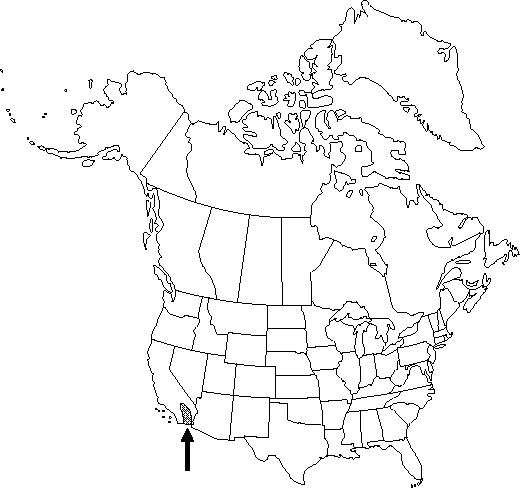Plants annual, caulescent, erect, 5-30 cm. Leaves basal and cauline; blade bright green or yellow-green, glabrous; ultimate lobes obtuse except terminal one slender, acute. Inflorescences cymose or 1-flowered; buds nodding. Flowers: receptacle obconic, cup without spreading free rim; calyx apiculate, glabrous, sometimes glaucous; petals yellow, 15-30 mm. Capsules 5-7 cm. Seeds tan to brown, spheric to ellipsoid, 1-1.4 mm, reticulate. 2n = 12.
Phenology: Flowering spring (Mar–May).
Habitat: Desert slopes, hillsides
Elevation: 0-1200 m
Distribution

Calif., Mexico (Baja California and Sonora).
Discussion
Plants of the El Paso and Rand mountains in the western Mojave Desert that have been referred to this species are Eschscholzia minutiflora.
The Kawaiisu used Eschscholzia parishii medicinally to treat venereal sores, gonorrhea, and syphilis (D. E. Moerman 1986).
Selected References
None.